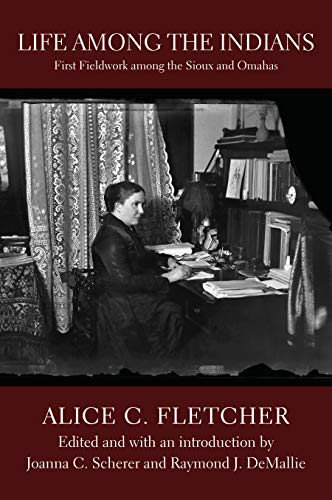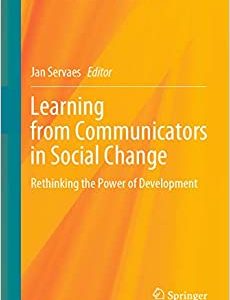Alice C. Fletcher (1838–1923), one of the few women who became anthropologists in the United States during the nineteenth century, was a pioneer in the practice of participant-observation ethnography. She focused her studies over many years among the Native tribes in Nebraska and South Dakota.
Life among the Indians, Fletcher’s popularized autobiographical memoir written in 1886–87 about her first fieldwork among the Sioux and the Omahas during 1881–82, remained unpublished in Fletcher’s archives at the Smithsonian Institution for more than one hundred years. In it Fletcher depicts the humor and hardships of her field experiences as a middle-aged woman undertaking anthropological fieldwork alone, while showing genuine respect and compassion for Native ways and beliefs that was far ahead of her time. What emerges is a complex and fascinating picture of a woman questioning the cultural and gender expectations of nineteenth-century America while insightfully portraying rapidly changing reservation life.
Fletcher’s account of her early fieldwork is available here for the first time, accompanied by an essay by the editors that sheds light on Fletcher’s place in the development of anthropology and the role of women in the discipline.
Life among the Indians, Fletcher’s popularized autobiographical memoir written in 1886–87 about her first fieldwork among the Sioux and the Omahas during 1881–82, remained unpublished in Fletcher’s archives at the Smithsonian Institution for more than one hundred years. In it Fletcher depicts the humor and hardships of her field experiences as a middle-aged woman undertaking anthropological fieldwork alone, while showing genuine respect and compassion for Native ways and beliefs that was far ahead of her time. What emerges is a complex and fascinating picture of a woman questioning the cultural and gender expectations of nineteenth-century America while insightfully portraying rapidly changing reservation life.
Fletcher’s account of her early fieldwork is available here for the first time, accompanied by an essay by the editors that sheds light on Fletcher’s place in the development of anthropology and the role of women in the discipline.











